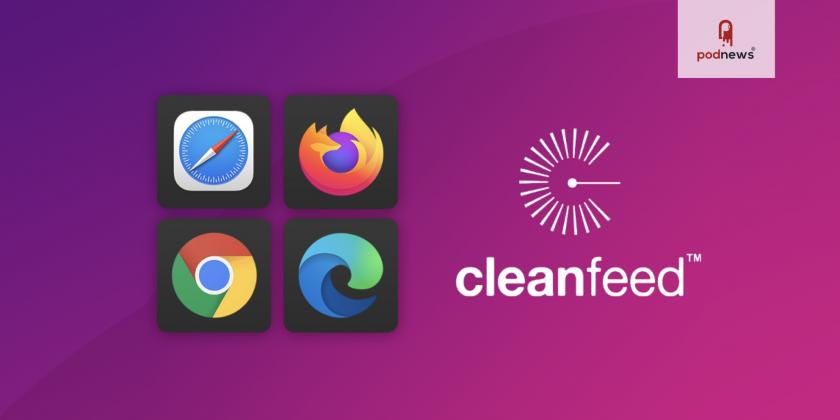
Cleanfeed Introduces Compatibility for Safari as the First Platform Available on any Mainstream Browser
This article is at least a year old
Cleanfeed, a collaboration tool for high definition, live audio, and recording, in your browser are pleased to announce compatibility for Safari. Following a recent announcement on Firefox, the update comes in an effort for Cleanfeed to expand support for multiple, mainstream web browsers. As with Firefox, Chrome and Edge, Cleanfeed guests will now be able to join their session with high definition, live audio, using Safari on macOS.
The development will see that content creators have a smooth experience when inviting a guest to a Cleanfeed session such as a podcaster’s guest, a journalist’s interviewee, or a broadcaster’s collaborator. With just one click, the guest can now join with live, high-definition audio, on their default browser, or browser of their choice.
Marc Bakos, Cleanfeed Co-founder, comments: “Safari is a major leap forward for us, the final hurdle in fact. It’s the default browser on macOS and it means guests don’t have to go out of their way to download a different browser in order to join a Cleanfeed session any longer. From today we’re enabling studios to connect with their guests that use Safari, getting straight to the content, spending less time setting up. Bringing Cleanfeed for guests, to all mainstream browsers, completes our commitment to becoming a browser agnostic web application.”
A truly open web relies on different browser environments, not just browsers based on Chromium. Safari, which represents around 18.5% of the world’s share of browsers, has always remained incredibly important to Cleanfeed for this very reason. Not only has it ensured that Cleanfeed is now available on the default browser on both Windows and macOS, but it means we can be reassured by the positive direction that all three major browser engines are heading, especially with the technology involved with bringing applications like Cleanfeed alive.
Safari, which is powered by the Webkit web browser engine, has recently introduced the necessary web audio components for Cleanfeed to run. This means from today, guests will have the same experience joining a Cleanfeed session from Safari, as others do from other supported browsers.
Mark Hills, Cleanfeed Co-founder concludes: “For a long time it’s been possible to use the open source “Chromium” browser with Cleanfeed and, in fact, we use that for a lot of our development. This may satisfy the open-source enthusiasts, but only goes some way towards the solution. A standard is only truly a standard when there are multiple, independent implementations of it. We depend highly on web audio standards, both of which are strengthened by the existence of Safari, and significant contributions of the Safari developers to the overall community that we’re a part of.”
About Cleanfeed
Imagine a technology that enables you to speak remotely with audio quality as if you were in the same studio as someone else. Now imagine low latencies, so you can speak without stepping on each other. Next bring multiple people together in the same way to make a professional, multitrack recording. Finally, package it so it’s accessible to anyone clicking a link in their web browser. That’s Cleanfeed - a collaboration tool for high definition, live audio and recording, content creation and connecting collaborators, anywhere in the world.
For more information visit: https://cleanfeed.net/
This is a press release which we link to from Podnews, our daily newsletter about podcasting and on-demand. We may make small edits for editorial reasons.